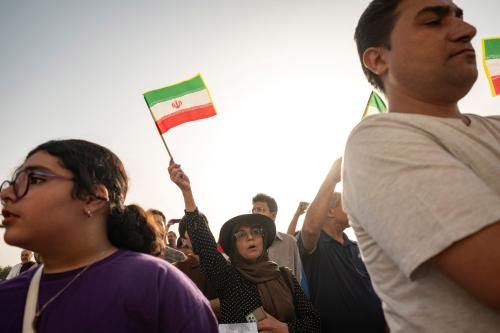The Lebanese army fought with admirable courage and striking determination. But its battle with Fatah al Islam in the Nahr al Bared camp should have neither lasted that long nor ended that way.
The asymmetry of the conflict, the fanatical nature of the enemy, and the difficult features of the terrain (a narrow and densely populated refugee camp) conspired against the Lebanese army’s capacity to swiftly defeat Fatah al Islam. But most of all, it was the Lebanese army’s firepower deficiency in both quantity and quality in the first weeks of the battle, its lack of good intelligence, and its sensitivity to the larger political ramifications of the conflict that denied it a more decisive response and a faster and less costly military victory.
To be sure, Fatah al Islam was no ordinary enemy. This al-Qaeda inspired salafist jihadist network – which reportedly still has several sleeper cells across the country – had enough men and materiel to wage a war like any other regular army battalion. But the group’s utter disregard of the laws of war, its borrowing and adoption of unconventional tactics taken from guerilla and terrorist manifestos, and its use of civilians and religious sites as shields during the confrontation were symptomatic of the asymmetry of the conflict.
This was also an enemy with uncompromising demands and an ambitious agenda. Its excessive military training and resource mobilization campaign since last summer, its provocative public statements, its belligerent behavior toward rival Palestinian groups inside the camps of Baddawi and Nahr al Bared, and its ultimate slaughtering of several Lebanese soldiers (in a surprise attack during their sleep) on May 20 near Tripoli – an event which triggered the army’s counter-offensive – made it obvious to all that the group meant business.
We later learned from testimonies of militants who were captured by the army that Fatah al Islam was planning a string of catastrophic terrorist attacks inside Lebanon, including attacks on UN headquarters in Beirut, large-scale bombings, and assassinations of leading Lebanese political figures. The plot, called ‘operation 577’, was to lay the foundation for an Islamic emirate in Tripoli, Lebanon’s second largest city and capitol of the North. Lebanese can owe it to their army and its intelligence services, not to their politicians, for averting such a disastrous scenario.
The battle with Fatah al Islam has once again underscored the urgency of determining the future shape and role of Lebanon’s armed forces. This topic should be on the forefront of Lebanese Parliament Majority leader Saah Hariri’s agenda when he meets with US Secretary of Defense Robert Gates today. However, some homework needs to be done on the part of Lebanese before Hariri asks for any serious military assistance from Washington.
To better fulfill its general mission, the Lebanese army, freed from Syrian command since May 2005, needs a clear national security policy, formulated by state elites. Such policy will identify the key present and future threats facing Lebanon and set the framework for rapid and efficient response. In addition to historical and conventional threats, Lebanon will have to grapple with the new unconventional threats of terrorism, insurgencies, and organized communal militias.
Last year’s war with Israel demonstrated once again that Hizb’allah’s self-proclaimed deterrence policy – aimed at protecting Lebanon from external aggression – is anything but viable. It was international pressure and scrutiny – not Hizb’allah’s katyushas – which ended the war.
The day the Lebanese state regains its monopoly over the use of force is the time when Lebanese could start seriously investing, in a national effort, in upgrading their military and transforming it into a modern and agile force that can defend their airspace, secure their waters, and patrol their borders. A unitary army, supervised solely by national civilian institutions, will also invite foreign aid and military assistance – especially from Washington – that could significantly contribute to its restructuring and modernization process.
Until that day comes, any lessons learned from the recent battle will be short term and any talk of reforming of the Lebanese armed forces will be of marginal significance.
The Brookings Institution is committed to quality, independence, and impact.
We are supported by a diverse array of funders. In line with our values and policies, each Brookings publication represents the sole views of its author(s).



Commentary
Op-edLessons for Lebanon from Nahr el-Bared
October 4, 2007